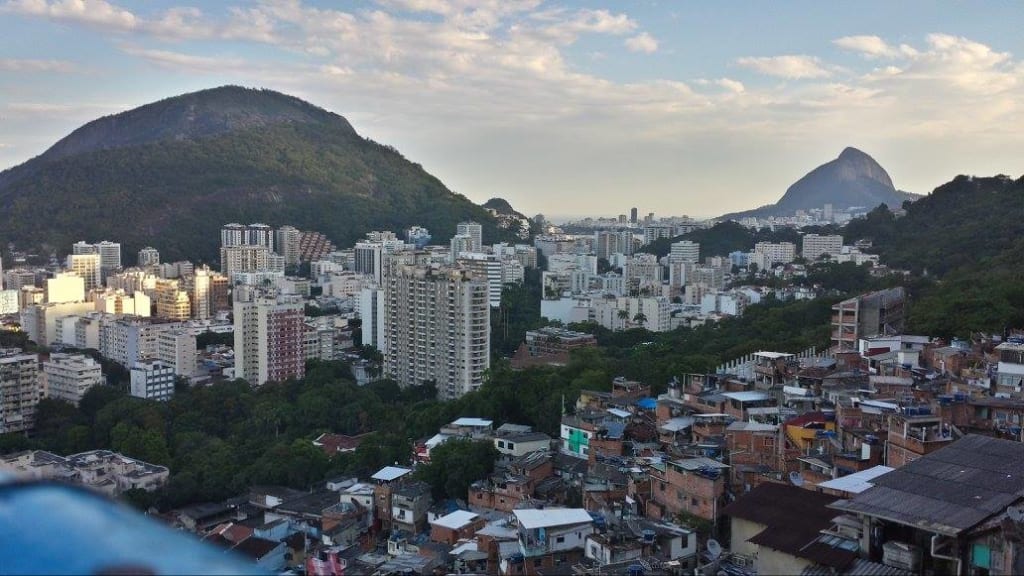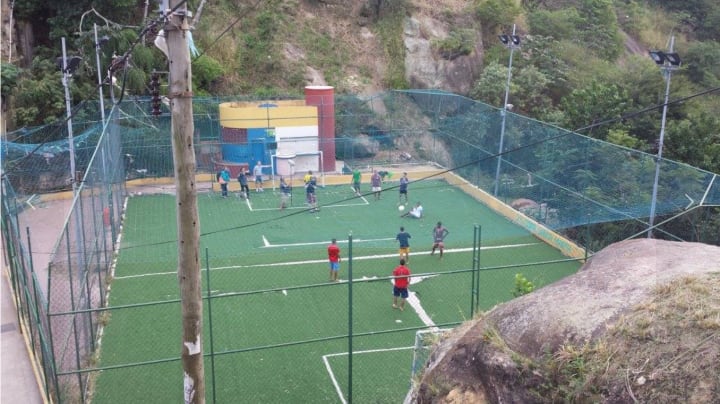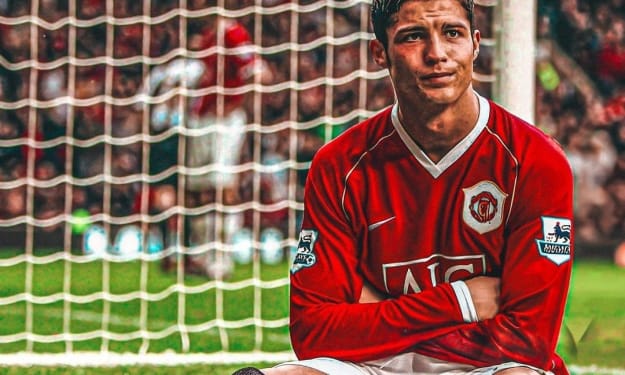
In the summer of 2014, I took myself to Heathrow airport to start what would be one of the best experiences of my life. What was originally meant to be a lad’s holiday to the World Cup in Brazil, a footballing holy land for any football fan and a once-in-a-lifetime experience, was now a solo trip into the unknown. Normally when everyone drops out of a lad’s holiday you don’t pack a suitcase and go anyway, but like I said this was a once-in-a-lifetime opportunity and I was not about to pass it up. Since I was going to be on my own, I needed to find something to do to pass the time and as a qualified football coach, I couldn’t resist when the chance came up to volunteer to coach local kids, in one of the favelas through Travelers Worldwide. This changed a couple of things for me though, firstly what would have been a two-week trip at most was now going to be 5 weeks, giving me enough time to coach and enjoy the World Cup, and secondly, I’d have to learn Brazilian Portuguese. As an Englishman, I’m used to going most places and having people speak my language better than I can speak there’s but this wasn’t going to be the case and I had a job to do. I’d studied German at school, I wasn’t very good, I know this because I remember not knowing the answer to a painfully obvious question, so painfully obvious in fact, my German teacher couldn’t help but throw my textbook across the room and kick me out of the class to help to relieve his pain. Mind you, not before taking several energetic minutes to forewarn me of the fool I was to waste this opportunity. He apologized after, but nearly bringing a man to tears with what I didn’t know, dissuaded me of any ambition of learning another language. So, there was little hope of success with Brazilian Portuguese but my number one rule as a coach is you don’t have to be the best, just better. By the time I boarded the plane I knew I knew enough no one would scream at me and that would do. In truth by the time I left, I knew just about enough that I’d had to explain more than once that I wasn’t actually Brazilian.
The favela was in Santa Maria, Botafogo, and the pitch was towards the top of the hillside. The views from the top of the cable car were majestic, anywhere else in the world this would be prime real estate and I’d be on my way to coach rich kids on a full-size all-weather 4G pitch with all the mod cons. Instead, there was a 5 a-side pitch with Astroturf that looked more like several rugs pulled together to cover the concrete and a hole in the fence on the hillside that meant only the Bear Grylls in the group could get the ball back when it went through. But to those kids and any kid anywhere in the world a pitch is a pitch, love it or hate, it’s going to get used. 5 days a week for a month, I went to that pitch and helped a local hero called José coach kids of all ages for hours. As a coach it was hard, I knew very little Portuguese. I had to learn to deploy simple words like quicker, slower, left, right, relax, with tactical precision. Luckily, as well as José I had another little translator, he knew more English than I knew Brazilian, not by much but he was only about 9 and nobody is perfect. Joking aside he was able to fill the gaps in translation when they were really needed, more importantly, he knew what the kids really thought and needed to hear, he was sharp as a tac. Trying to communicate with kids is hard enough at the best of times, but when they don’t speak your language, you have to adapt. I quickly learned less is more. I was never the most vocal coach to begin with, I liked to speak only when there was something worth saying. However, being forced to keep my mouth shut more often than not and finding the most efficient way to explain myself without question made me a better coach. I realised I’d been talking way too much to my players, they didn’t need detailed explanations they just needed to know the point and then given the opportunity to give it a go. I remember my first coaching mentor when I became a coach telling me “We’re coaches, not teachers, we don’t teach players to play football they can figure that out themselves, we coach, we simply guide them.” If nothing else my time in Rio was proof of that. I was able to get the vast majority of what I wanted to say across to the players, the issue was only when they didn’t do it figuring out why or how else to explain it was a lot harder. When all I could do was observe I did that better than I had before and in turn, gave the players the space to develop without constant instruction.

Brazil is world renown for Samba football, they play with a style and a joy that has mesmerised the world. Arguably the best style of football, the best team and the best player in the history of world football has come from Brazil. So, I was on a mission to figure out what was in their special sauce. Great players aren’t made in the big clubs, any coach will tell you they’re well on their way there when the clubs pick them up. They’re made where they grow up. I’ll be honest I wasn’t overly impressed at first. Don’t get me wrong there were some incredibly talented players, immense skill and chance of direction, ball manipulation and quick thinking, but they weren’t noticeably better than the best young talent I’d seen in the UK, it was pretty close and there weren’t noticeably that many more of them. So, what was the difference? Was there any? Yes. The difference was at the other end of the scale. The worst players in each age group were by far better than the worst player in any group I had coached before at the grassroots level, but I still didn’t know why.
One day I’d been invited to a BBQ at the pitch, the most memorable thing about it other than the generous hospitality and incredible BBQ meat (with the real special sauce) was how the kids danced with each other. Dancing was a part of life, being able to dance was a status symbol, it made you cool. It dawned on me how often I’d seen them doing it, before every training session, the new moves they tried to mimic. I’ve coached hundreds of kids in England, I’ve never seen a group of kids have a dance-off before training or during as sometimes happened. As the special sauce dripped from my chicken thigh down my hand, the ‘special sauce’ of samba football dropped like the preverbal penny. The dancing. This isn’t just any dancing this is Samba! The rapid movement of feet, change of direction and shifting of weight. The coordinated movement of their feet was something they all practiced outside of the pitch. Without knowing it they were training themselves to be better footballers. This meant the weakest player was still reasonably capable with a ball at their feet, this raised the bar the whole way up and forced every player to be better. To this day I tell every young kid if they want to be better at football learn to dance, it’s a lot more fun than all the drills and you can do it anywhere, anytime, and still do the drills. Life should be enjoyed and so should player development and that’s the spirit of Samba football that has electrified the world.
About the Creator
Lexington
I am new to writing, but I have always been fascinated with words, storytelling, and communication in general. I'm an eclectic soul, with many interests and I hope to write everything from fiction to research pieces, who knows.






Comments
There are no comments for this story
Be the first to respond and start the conversation.